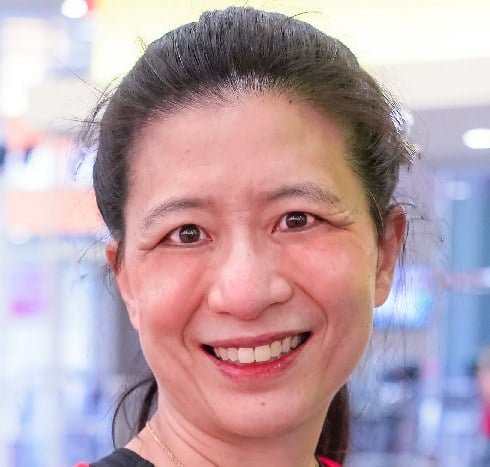In the fall of 2020, in the depths of the pandemic, I attended the Philadelphia Inquirer Telling Your Health Story Conference from the safety of my home. I had volunteered to do the Story Slam at the end of the conference and planned on presenting a piece about caring for my mother with Alzheimer’s. Right before the Story Slam, the keynote speaker gave a moving account about caring for her 100 year old grandmother. I quickly decided to scrap my original story and tell how I underwent a diagnostic procedure that unfortunately went from routine to critical. There was even a “Law and Order” twist at the end. Instead of being bitter and angry at my doctor, I ended up admiring him and respecting him for his care and compassion.
Fast forward six months: my mother died. As someone experiencing a loss, I hunted for some sort of meaning. I told a friend about the first in-person visit I had with my mom after I got vaccinated. It had been over a year since I was last able to sit with her and hold her hand. My mom initially didn’t recognize me when I still had my mask on. The second I took my mask off, it became a long overdue emotional reunion. Her face lit up as she grabbed my hand, and her eyes became teary. As someone who couldn’t remember what she had for breakfast, I didn’t think she would be cognizant of the situation. I didn’t know if I was projecting my own emotions on her, or if it was my desires making my brain interpret the situation the way I would want it.
After I recounted this visit to my friend, she pointed me to the Penn Medicine Listening Lab, a platform where providers and patients share stories about their experiences. There was a story by a physician where he acknowledged that dementia patients can have what he called “sparks of clarity,” like the one my mom had. After gaining the reaffirmation that I so badly needed, I was intrigued by the site and decided to poke around to see what other stories were there. That’s when a familiar name caught my eye. It was the doctor whom I referenced in my Story Slam.
I learned that my doctor had contracted COVID and suffered a stroke which rendered him unable to practice medicine. It was like when a star athlete suffers a career-ending injury. Sure, you feel horribly for the person, but the difference here was that he was not only my doctor, but someone with whom I had connected. He was someone who I had gone through a difficult experience with and as a result of it came out having a tremendous amount of respect for him.
Even in the depths of the grief that I was personally going through, the sense of loss was very profound. I reached out to the creators of the Penn Medicine Listening Lab and told them about the story that I had done for the Telling Your Health Story conference. Fortunately, the YouTube link still worked, and they were able to watch it for themselves. They thought that it was too compelling of a story to pass up and decided that my doctor and I should do a joint story together for the Listening Lab. The result was a story called “Feeling Cared About.” My doctor acknowledged at the end that stories such as the one I brought forth helped him get closure at the end of his career in medicine. It was bittersweet.
What started as something whose main intent was to entertain had taken on a life of its own and a whole new meaning. A story can bring in a dimension that medical records, tests and images cannot express and make the whole experience relatable. From there, connections can be made which opens up a world of possibilities. That’s the power of storytelling. Tell your story!
Helga Yang is a senior software engineer who lives in the Philadelphia suburbs. Through a combination of disease, chronic and congenital conditions, she discovered the necessity of self-advocacy and actively promotes patient advocacy in various support groups.
Did you enjoy this post? Sign the Manifesto and learn more about becoming a member.







Recent Comments